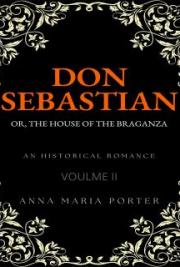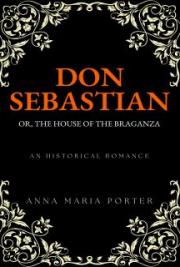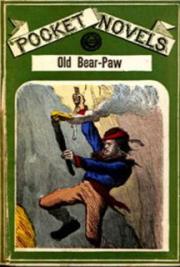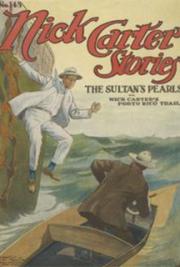FINAL REMARKS
THE PLOT
As typical with many Shakespeare plays,
Antony and Cleopatra is not so easy to categorize or classify. The reader, in fact, could view the play in three quite distinct ways: (1) as a Chronicle Play or History Play, (2) as a Tragedy, or (3) as a Love Story. The play operates on all three of these levels, and each level is intertwined or connected to the other two levels.
As a History Play, the drama involves an extremely critical and significant political situation that would affect the Roman Empire and its development. Shakespeare dramatizes the crucial sea and land battles that contribute to the final outcome of the conflict and Octavius Caesar’s victory and later sole rule of the Empire. The play also is set, like an epic, in many lands over a period of many years. Shakespeare disregards the concept of Aristotle who suggests that a great play should adhere to the Unities of Time, Place, and Action. For Aristotle a great play (like the Greek tragedy Oedipus the King) has one central setting and all of the main action of the play occurs within a twenty-four hour period. Shakespeare, however, disregards dramatic conventions in his effort to create a superb play.
As a Tragedy, the play involves the tragic fall of one of the greatest Romans of all time, Marcus Antony. Antony is involved in both internal conflicts involving his great passion for Cleopatra overruling his reason and external conflicts involving Octavius Caesar and control of the Roman Empire. The play also involves Antony’s struggle to preserve his honor even though his passion overwhelms him and causes him to betray himself. The play, however, is actually a double tragedy. Cleopatra is also a tragic figure who falls from a place of power and respect because of her emotions, which are equal to or even greater than the passions of Antony. The idea of the double tragedy also links this play to Julius Caesar. In that earlier play, Shakespeare also developed two tragic figures: Julius Caesar and Marcus Brutus. Both plays become more than twice as intriguing because this doubling aspect also allows the viewer or reader to compare and contrast the tragic figures and the similar themes that envelop these characters.
Finally, as a Love Story, Shakespeare explores the great passion in one of the greatest love relationships of all time. Even if Shakespeare had never written his play, the tale of Antony and Cleopatra would have been told and retold throughout the centuries. But with Shakespeare’s play, the story takes on a richness and depth that a mere historical account could never hope to accomplish. In regards to such richness, this play also bears a relationship to another great Shakespeare tragedy: Romeo and Juliet. Shakespeare’s Antony and Cleopatra is a counterpart to that earlier love story: Romeo and Juliet concerns young lovers, Antony and Cleopatra concerns mature lovers. And in both plays the overwhelming passion of the lovers contributes in a significant manner to the fall of the heroes and heroines.
Perhaps, though, a reader may also find a fourth level on which to examine the play. Antony and Cleopatra also involves a struggle between man and the undefeatable presence of fate. Shakespeare includes this Man vs. Fate Conflict in many of his plays, and references to the forces of fate or destiny are scattered throughout this work. One notable example occurs toward the end of Act IV (in Scene 13) when Antony is observing the great sea battle between his ships and those of Octavius. In the beginning of that scene, the character of Scarus (Antony’s man) makes several references to fate: the swallows (as omens), the augurs (or soothsayers), and Antony’s own “fretted fortunes” (3-8). But Antony himself sums up the conflict best when he personifies fate: “Fortune and Antony part here” (19). Antony describes Fate as his former friend who is now leaving him forever. In other words, Antony no longer believes that he will have any good luck. He believes that his future will be negative and dismal. Even figures of greatness, even one as magnificent as Antony, can fall prey to the chaotic and random acts of Chance or Fate.
SOURCES
The primary source for Shakespeare’s play is Plutarch’s Lives of the Noble Grecians and Romans, written in Greece circa 75 AD. Shakespeare used a translation of the work into modern English by Thomas North (written in 1579).
A Renaissance writer who may have influenced (but not necessarily did influence) Shakespeare is Samuel Daniel. Daniel wrote a play called The Tragedie of Cleopatra sometime around 1594. This play focuses on Cleopatra after the time of Antony’s death. Daniel also wrote a narrative poem called “Letter from Octavia” in 1599. Shakespeare would certainly have been aware of these sources and in all likelihood did attend a performance of the play on Cleopatra. But whether these works inspired or influenced him in any way is uncertain.
Shakespeare also likely used the historical source entitled Civil Wars by the Roman writer Appian. This work was also translated into modern English in 1578.
One other possible source is the French play entitled Marc-Antoine, written in 1578 by Robert Garnier. The play was translated into English in 1590, but Shakespeare may not have seen it performed.
THEMES
As with any Shakespeare play, numerous concepts, ideas, and motifs fill the play and suggest the possible main theme of the work:
Love Jealousy Honor Reason vs. Emotion Passion Loyalty Betrayal Peace War Fortune/Fate Anger |
Cowardice Rule Power Hubris/Pride Obsession Seduction Selfish Ambition (Ventidius) Moral Decay (Enobarbus) |
Many more could be added to this list, perhaps. The reader should also consider the following three thematic ideas:
(1) The Two Worlds Theme: There is a clash of the two worlds in this play: the World of the Lovers and the World of Politics. These two worlds are also suggested by specific locations. Egypt is the world of the lovers, and Rome is the world of politics. Antony’s problem, essentially, is that he wants to live in both worlds at the same time. Rome, however, will not leave Egypt alone. Politics will not allow Love to exist in peace. The two worlds do not seem able to coexist peacefully.
(2) The Grandeur of Love Theme: Shakespeare shows that political action and rule are not the only aspects of human activity in which man reveals nobility and greatness. Passion is also noble. Passion is also great. The greatness of the story and the greatness of the characters is derived from the greatness of their passion. Cleopatra expresses this greatness of passion early in the play:
Eternity was in our lips and eyes,
Bliss in our brow’s bent; none our parts so poor
But was a race of heaven. (Act I, 3: 35-37)
Their passion is not only great: it is sublime and godlike.
(3) The Choice of Love over Empire: When Antony leaves Octavia for Cleopatra, he is making a decision that his love for Cleopatra is more important to him than his desire to rule the Roman Empire. Love, to Antony, is more important than glory, fame, grandeur, and power. Not many men would be willing to give up so much for love. A modern example of this kind of choice (although not nearly as dramatic) occurred in 1936. In that year Edward VIII abdicated (gave up) the English throne to marry an American. After the death of his father, George V (who reigned from 1910 to 1936), Edward VIII became King of Great Britain and Ireland, on January 20, 1936. He reigned as king until his abdication on December 11, 1936. Edward would not give up American divorcée Wallis Simpson for politcial reasons. Instead, Edward chose to abdicate, making him the only king of Britain to have given up voluntarily the throne. Edward was not giving up an entire empire, though. He was a constitutional monarch – his power over England was extremely limited. Still, his sacrifice was a shock to many people in England at that time. Kings just did not give up their crown. For many aristocrats, especially, this was unthinkable. Antony, by contrast, is giving up absolute power over most of the known world. Shakespeare thus illustrates that Love, indeed, is an exceptionally powerful force in the world.
COMMENTS FROM THE CRITICS
Harold Bloom
in Shakespeare: The Invention of the Human (pp. 546-47): “Of Shakespearean representations of women, Cleopatra’s is the most subtle and formidable, by universal consent. Critics can never agree on very much about her: Shakespeare’s control of the various perspectives on her is so astute in this play, more perhaps than in any other, that the audience is given an enigmatic range of possible judgments and interpretations. Since Antony clearly does not understand her, are we likely to do any better? … With Hamlet, Falstaff, and Iago, they [Antony and Cleopatra] are the most intensely theatrical personages in Shakespeare, and Cleopatra at last wears Antony out: it would take Hamlet or Falstaff not to be upstaged by her. Cleopatra never ceases to play Cleopatra, and her perception of her role necessarily demotes Antony to the equivocal status of her leading man. It is her play, and never quite his, since he is waning well before the curtain goes up, and she cannot allow herself to wane. The archetype of the star, the world’s first celebrity, she is beyond her lovers – Pompey, Caesar, Antony – because they are known only for their achievements and their final tragedies. She has and needs no achievements; her death is triumphant rather than tragic, and she is forever known best for being well known.”
Walter Cohen
in The Norton Shakespeare (p. 2619):
“Much of the play’s fascination arises from this intertwining of empire and sexuality. This issue is already present in Thomas North’s translation of Plutarch’s Lives. … Plutarch and other writers of Greek and Latin antiquity were preoccupied with the opposition between the conquering West, often thought by them to stand for political and moral virtue, and the older civilizations it subjugated in the East, frequently supposed to represent luxury and
decadent, feminized sexuality.”
Edward E. Foster
in A Reader’s Guide to Shakespeare, ed. Joseph Rosenblum (pp. 78-79):
“Only a genius could apply such beauty of poetry and philosophy to match the powerful events: A man born to rule the world is brought to ruin by his weaknesses and desires; deserted by friends and subjects, he is denied a noble death and must attempt suicide, but bungles even that. The tragedy is grimly played out, and honor and nobility die as well as the man.”
Frank Kermode
in The Riverside Shakespeare (p. 1343):
“From Johnson to Bradley … critics have censured its apparently loose construction. … Rightly, the play is now quite commonly considered to be among Shakespeare’s supreme achievements. An age which has the theatrical conditions to reproduce the rapid flow of scene easily disposes of the objections of Bradley and Johnson. There is now much less to prevent us from sensing, in the theater or in the study, the sustained interplay of theme and poetry that makes this one of the most highly-wrought of all the tragedies.”







